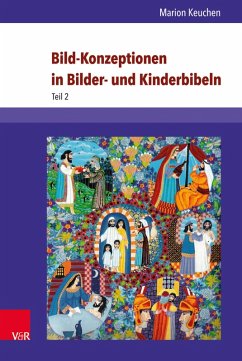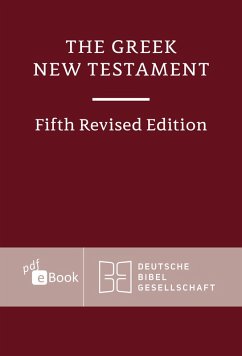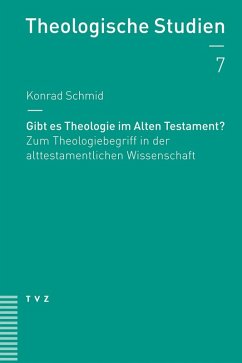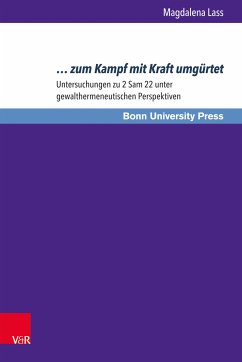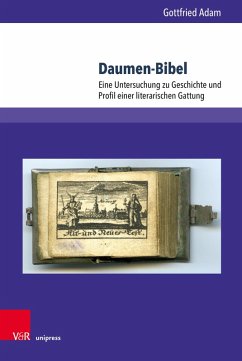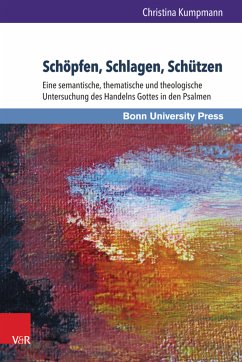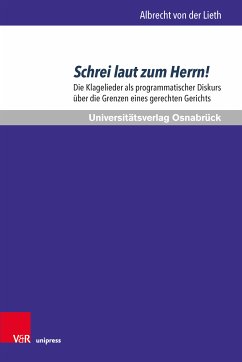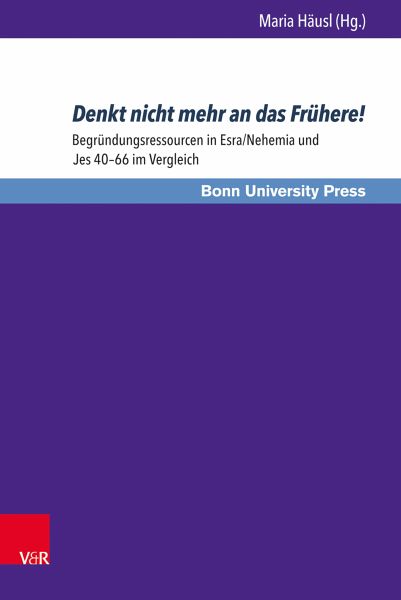
Denkt nicht mehr an das Frühere! (eBook, PDF)
Begründungsressourcen in Esra/Nehemia und Jes 40-66 im Vergleich
Redaktion: Häusl, Maria

PAYBACK Punkte
0 °P sammeln!
Die Bücher Esra/Nehemia und Jesaja sind Teil des Diskurses um die Konstituierung des nachexilischen Israel. Sie unterscheiden sich nicht nur in der Konstruktion des nachexilischen Gemeinwesens, sondern auch in ihren Begründungen. Untersucht man den Bezug auf Gott, den Rückgriff auf vorgegebene Traditionen, den Entwurf eines gemeinsamen Ethos und die Bedeutung von Raum und Zeit, sind die beiden Positionen wie folgt zu charakterisieren: Das Buch Esra/Nehemia nimmt explizit auf Traditionen Bezug, das Gemeinwesen konstituiert sich auf der Basis der Tora als Erinnerungssowie Lerngemeinschaft und...
Die Bücher Esra/Nehemia und Jesaja sind Teil des Diskurses um die Konstituierung des nachexilischen Israel. Sie unterscheiden sich nicht nur in der Konstruktion des nachexilischen Gemeinwesens, sondern auch in ihren Begründungen. Untersucht man den Bezug auf Gott, den Rückgriff auf vorgegebene Traditionen, den Entwurf eines gemeinsamen Ethos und die Bedeutung von Raum und Zeit, sind die beiden Positionen wie folgt zu charakterisieren: Das Buch Esra/Nehemia nimmt explizit auf Traditionen Bezug, das Gemeinwesen konstituiert sich auf der Basis der Tora als Erinnerungssowie Lerngemeinschaft und Heiligung wird nach innen und außen praktiziert. Die jesajanische Prophetie sieht besonders in Gott den Garanten für die Zukunft des Gemeinwesens, das wesentlich auf Gerechtigkeit basiert und sich für die Menschen aus den Völkern öffnet. The books of Ezra/Nehemiah and Isaiah make up part of the discourse on the constitution of post-exilic Israel. They differ not only in the construction of the post-exilic community, but also in their justifications. If one examines the relation to God, the recourse to given traditions, the draft of a common ethos and the meaning of space and time, the two positions are to be characterised as follows: the book of Ezra/Nehemiah explicitly refers to traditions; the community is constituted on the basis of the Torah as a memory-based and learning community, and sanctification is practised internally and externally. Jesavian prophecy sees especially in God the guarantor of the future of the community, which is essentially based on justice and opens itself up to the people of the nations.
Dieser Download kann aus rechtlichen Gründen nur mit Rechnungsadresse in A, B, BG, CY, CZ, D, DK, EW, E, FIN, F, GR, H, IRL, I, LT, L, LR, M, NL, PL, P, R, S, SLO, SK ausgeliefert werden.




